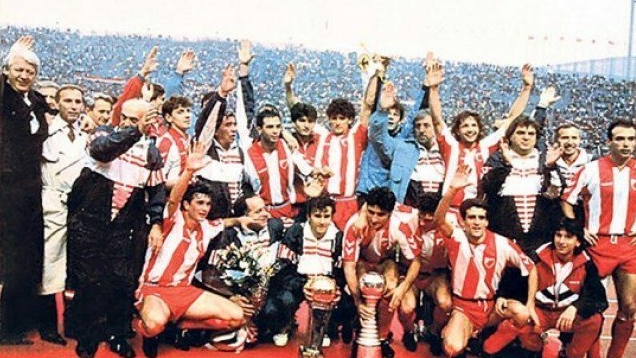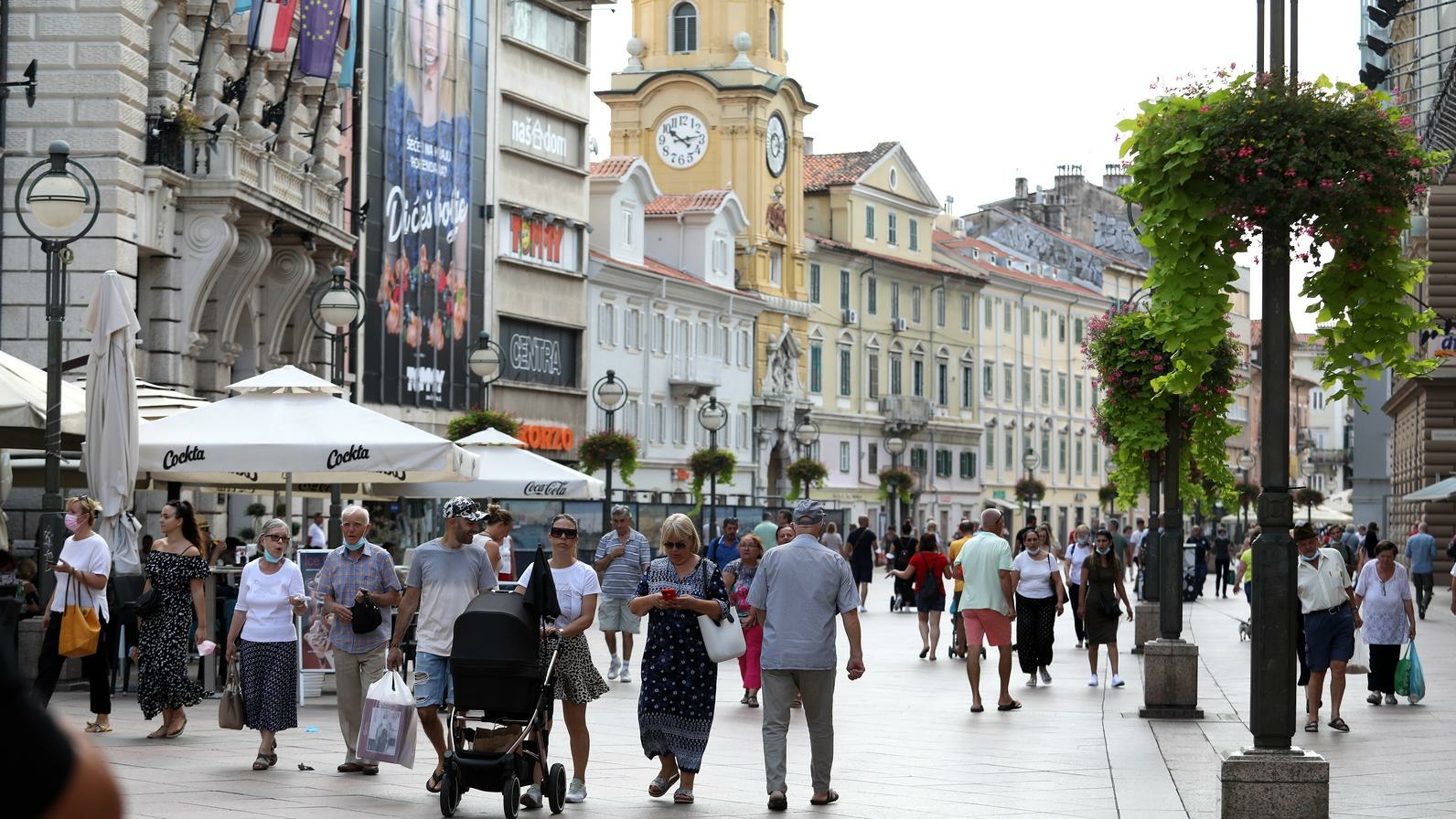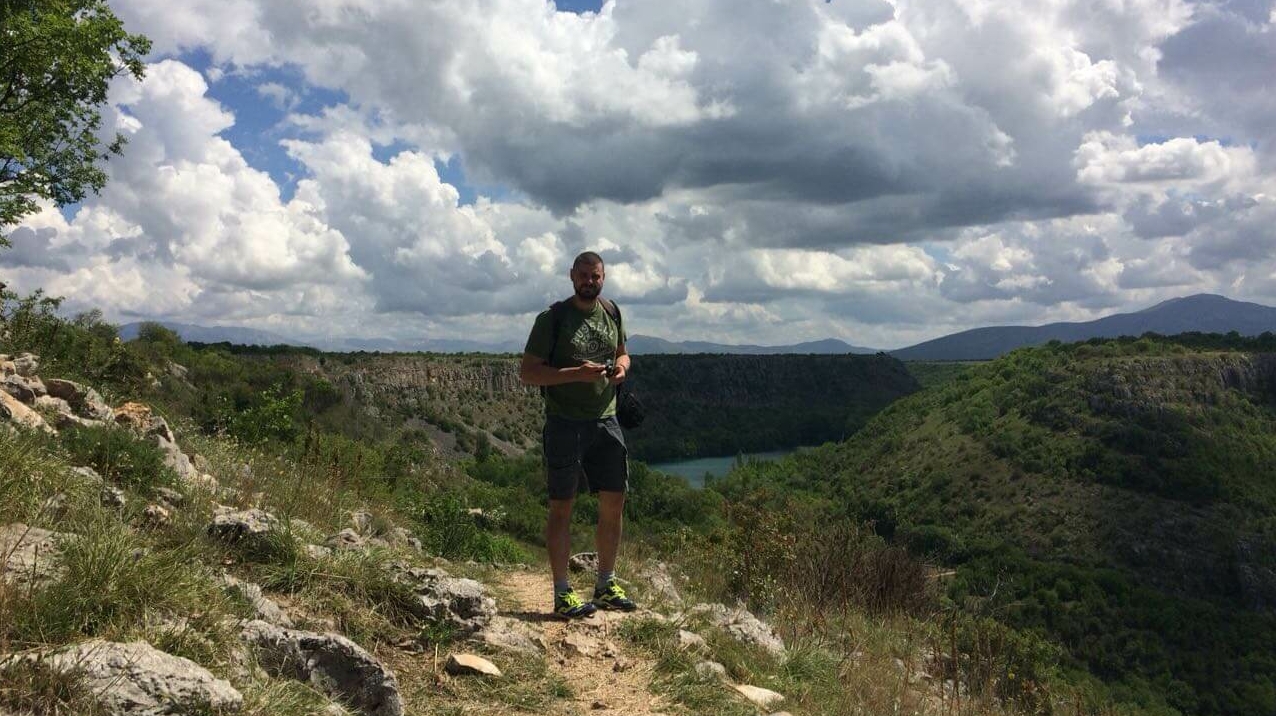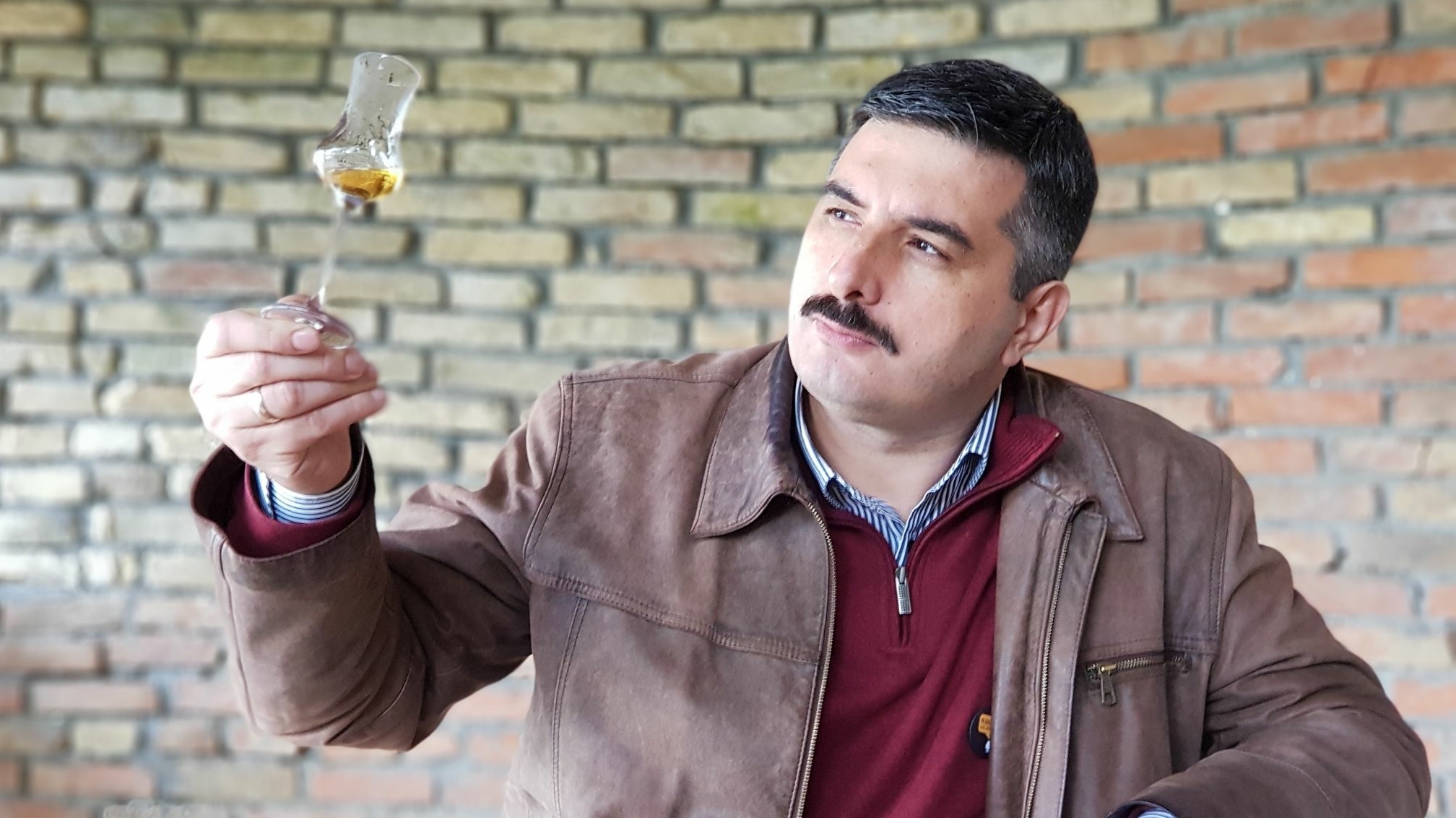There are events that are not forgotten and are remembered forever. For many sports fans from the area of the former Yugoslavia and beyond, one of them is the moment in the early summer of 1991 in the Italian city of Bari when the Belgrade football club Crvena zvezda won the European Champions Cup, the most important football tournament on the Old Continent. Crvena zvezda, along with Romanian Steaua, is the only Eastern European club to win this trophy and the only club from the former state to do so in the 67-year history of this competition. Crvena zvezda’s technical director at the time and the architect of the winning team, the legendary Dragan Džajić, said many years later: “Whenever Zvezda plays poorly, we can say – what about Bari?”
The memory of Zvezda’s brilliant season of 1990-1991 does not fade: year after year, various channels replay the most dramatic parts of Zvezda’s key games, players’ statements, anecdotes and tensions around the stadium and excited reminiscences of the witnesses of those glorious days. For great sports results are not only for the fans. They are rich with cultural and social symbols that also excite people who know little about football because such results inspire hope and optimism that transcend sport. They prove and say a lot about the positive atmosphere of a human achievement that connects people through sport and can often help unify a society, like a summer breeze that brings back a smile to one’s face. That unity – a persistent question and eternal topic in the Balkans – was in the foundations of this not only sporting achievement. This text is about that unity, achieved in the worst moment for the fate of the former state.
A multicultural sporting community
In Yugoslavia, Crvena zvezda Football Club was always considered “a very Serb” club (just like Dinamo was considered “a very Croatian” club), but the indisputable fact is that, in the moment of its greatest triumph, Crvena zvezda was a multicultural sporting community par excellence, certainly more so than some other clubs in Yugoslavia at the time. That unity, as the most beautiful amalgamation that powered this success, is remembered by that championship-winning generation and all the generations after it. Without all those players that came from different parts of the country, there would simply be no Zvezda champions. This atmosphere is best evoked by Zvezda’s general secretary at the time, Vladimir Cvetković, once a famous Yugoslav basketball player, who described how Zvezda scored that famous goal in the semifinal of the European Champions Cup against Bayern in Munich: “The Romanian Belodedić passed the ball to the Croat Prosinečki, who passed a long ball along the flank to the Serb Binić, who passed it to the center from where the Macedonian Pančev scored. That’s what Zvezda was like then, and that was its great worth.”
Much more than football success
The rematch with Bayern in Belgrade was surely the greatest drama ever seen at Zvezda’s stadium. Crvena zvezda scored in the last minute to qualify for the finals in Bari, but the celebrations after that, at the stadium and in front of television screens across Yugoslavia, showed this was something much greater than just a football triumph. “Rejoice, esteemed viewers across Yugoslavia,” the excited TV commentator Milojko Pantić exclaimed then. That night in a Belgrade tavern, the actor Ljuba Tadić told this reporter: “After Mladen Delić and his exclamation ‘My people, is this possible?’, you are the second commentator who will go down in history with the words ‘The sky opened, and the stadium exploded.’” After winning the European Champions Cup, Crvena zvezda became the world champion after beating the Chilean Colo-Colo 3-0. Regardless of the political and national divisions in Yugoslavia, Zvezda’s success at that moment belonged to everyone and was embraced by all who, through football, saw the Balkans as a place where love, happiness and friendship still existed. The socialist political formula of “the brotherhood and unity” of all the nations and ethnicities of Yugoslavia became real for tens of thousands of people who celebrated this great and unique achievement in all parts of the country.
The players we have mentioned weren’t the only ones who made up Zvezda’s multicultural community: Refik Šabanadžović came to Zvezda from Sarajevo, Goran Jurić came from Mostar, Dejan Savićević came from Podgorica, Ilija Najdoski came from Skopje, Siniša Mihajlović came from Vukovar and the coach Ljupko Petrović, a long-time player for NK Osijek, was from Bosnia and Herzegovina. The Crvena zvezda of the time was certainly neither a Yugoslavian nor a Serbian political project but a winning combination of very good players bonded by a deep friendship and not separated by nationality. “We were like a family. We supported each other on and off the pitch. If we quarreled sometimes during halftime because someone didn’t pass the ball, those weren’t fights; that is normal in football, and we would still all go out together in the evening. It didn’t matter to us whether someone was from Ljubljana, Podgorica, Belgrade or Zagreb but whether they were a good person,” Darko Pančev talks about this unity years later. Robert Prosinečki, a typical Zagreb native, spent his best football years in this Crvena zvezda. “Zvezda was my club, and I am proud of it,” Prosinečki stated years later. “Crvena zvezda was the fulfilment of all my dreams,” Refik Šabanadžović said in a similar tone.
Friendship that transcends nationalism
One event indirectly testifies to something stronger and more lasting than any narrow-mindedness or nationalism. At the tragic game between Dinamo and Crvena Zvezda on 13 May 1990 in Zagreb, cut short because of the violence coming from the fans of both clubs – a kind of prelude to much more dramatic events a year later – the Dinamo player Zvonimir Boban, in the general chaos that reigned on the field, kicked a police officer with his cleats and brought him to the ground. In any serious country, such an act, regardless of the circumstances, reasons and justifications, would probably lead to a long-term suspension and destroy a brilliant career. Boban’s “lifesaver,” in the moment when interethnic tensions in the country reached a boiling point, was Miljan Miljanić, a legendary former coach of Crvena zvezda and a high-ranking official of the Football Association of Yugoslavia at the time. He interceded for Boban so that he didn’t receive a draconian punishment. Miljanić was simply a man of good intentions, sympathetic and free of any national or political bias. Boban, therefore, later still played for the best Yugoslav team against the Faroe Islands, and Miljanić enabled his suspension for the attack on the policeman to be lifted when he wanted to leave Dinamo for Milan. That’s why, along with many fellow players and coaches, Boban invited Miljan Miljanić to his farewell match in Zagreb in October 2002. When Miljanić died in 2012, Boban, as well as many others from that generation from various parts of the region, came, out of respect for him, to the “notorious” Belgrade for his funeral. “When Miljanić died, I felt the need to go to Belgrade and pay my last respects to that noble man,” Boban later said.
A gift to a disintegrating country
The disintegration of Yugoslavia also meant the disintegration of a wonderful football friendship that wasn’t forged due to any state or political reasons but due to the love of football and people. Many years later, many of the players from that glorious Zvezda generation would say that they were happy and excited to play in front of packed stadiums in Skopje, Mostar, Ljubljana, Zagreb, Belgrade and elsewhere because the geographical breadth, the multitude of people, the joyousness and diversity were the excitement of their lives they wouldn’t exchange for anything. “When we couldn’t play at all those stadiums anymore, we all went our different ways; we went abroad to make money, but we left our hearts in that Zvezda changing room of our friendship,” one of them would later say. It was a cruel twist of fate that so many people from all parts of Yugoslavia came together in the wish that Crvena zvezda win the title in the moment when this country was falling apart. Zvezda’s players say that, in that final match in Bari, they heard from the stands the songs of fans from Slovenia, Macedonia, Croatia, Bosnia and Herzegovina and certainly not just from Serbia. The Saint Nicholas Stadium in Bari, where the famous game was played, is a kind of distant symbol as well. It is named after the only Christian saint (to whom a church in that city is dedicated) recognized by both the Catholic and Orthodox Church. “Winning the European Champions Cup was the swan song not only for a fantastic generation of footballers stopped in their prime but also for a country that, while celebrating that great success, was moments away from its bloody demise,” many participants and witnesses of this triumph would later say. That country lasted – speaking without any cynicism – until the last rejoicing fans left Bari. The words of Vladimir Cvetković, a Zvezda official, on the pitch after the game sounded like the greatest joy that turned into a sad epitaph the next morning: “We could not have given a greater gift to our country.”
Translation from Croatian: Jelena Šimpraga
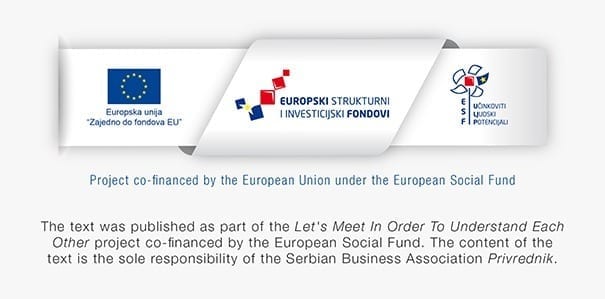
This post is also available in: Hrvatski

